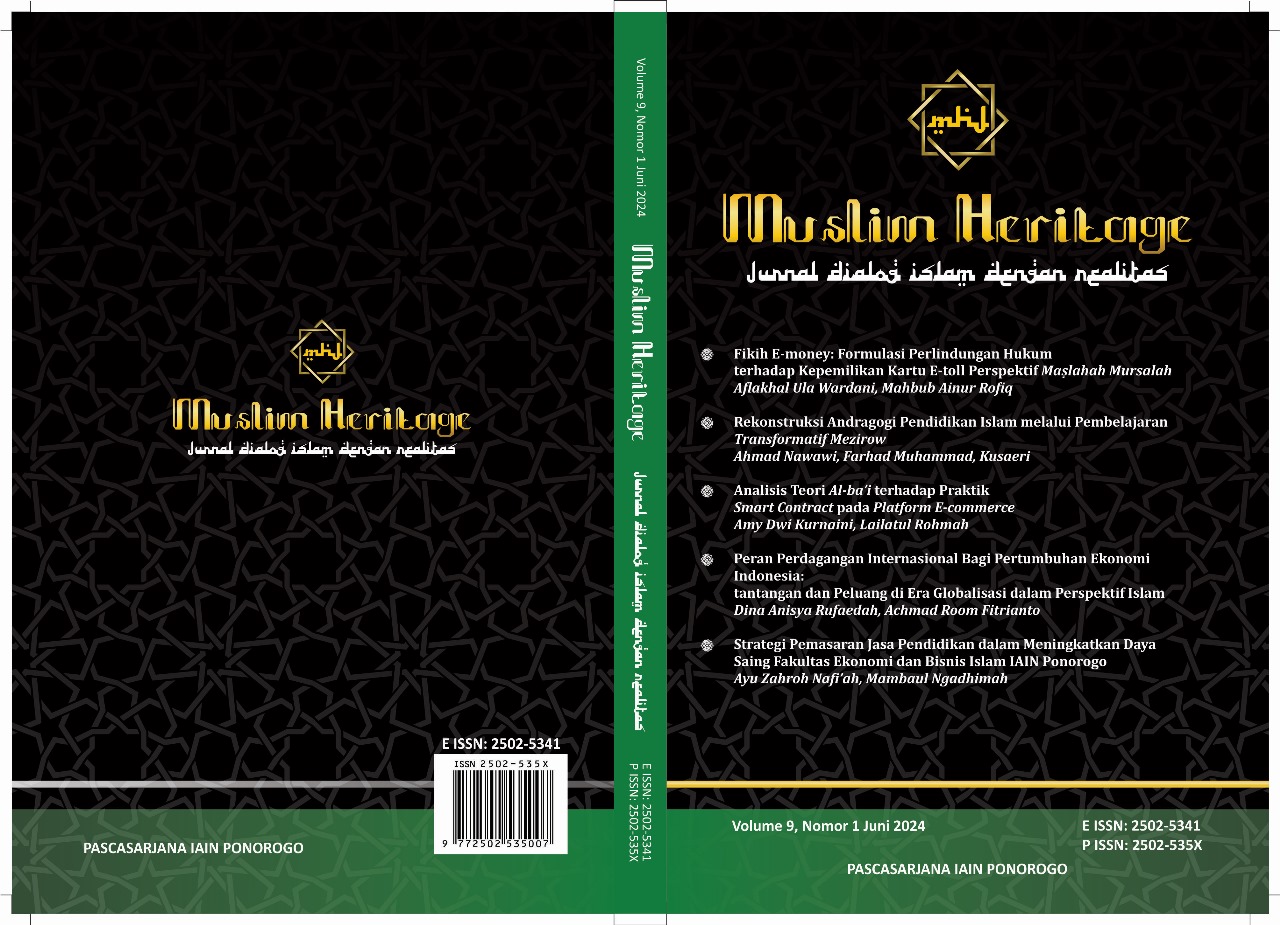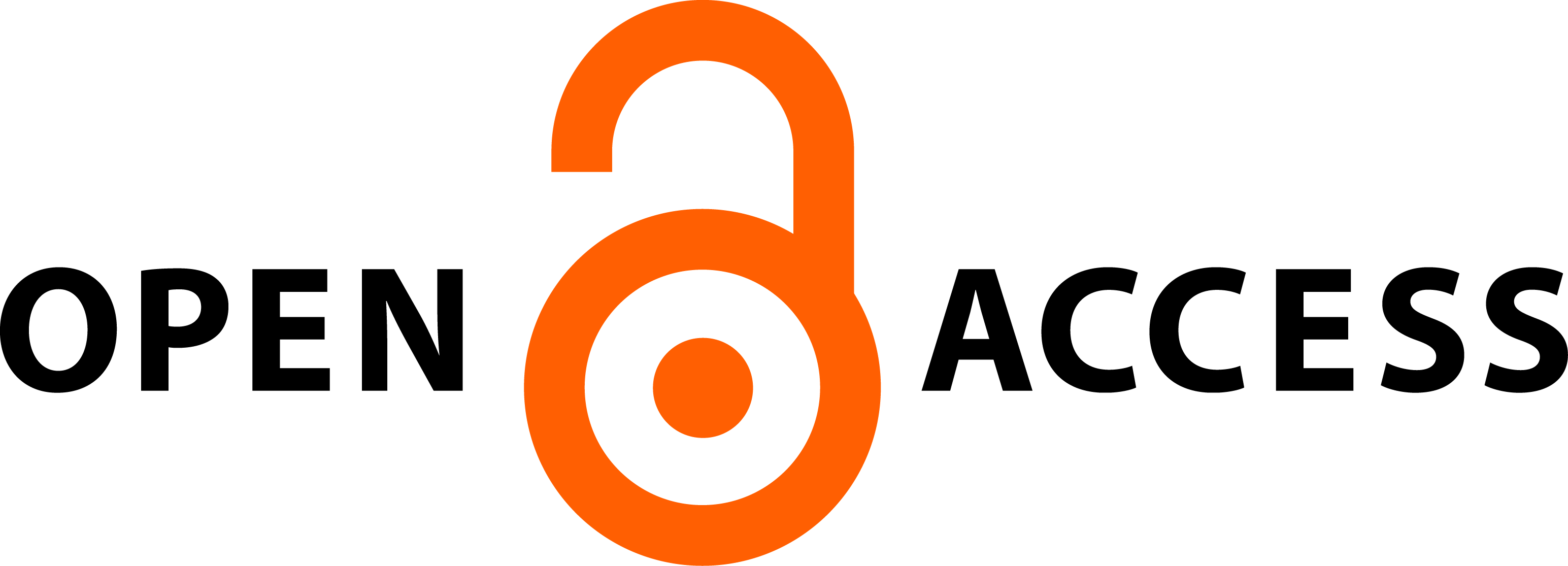HUKUM SHOLAT JUM’AT SECURITY SHIFT PERSPEKTIF ULAMA FIKIH KONTEMPORER
DOI:
https://doi.org/10.21154/muslimheritage.v9i1.7429Abstract
Abstract
The emergence of various problems which Islamic law in the contemporary era often raises
questions in the community. So it is important that there is a contribution from contemporary
f
ikih scholars to answer these problems. This study aims to explore the law of Friday prayers
security shift perspective of contemporary fiqh scholars. The writing of this article uses the
library research method, using various pieces of literature related to the discussion points. Thus,
this research produces findings that contemporary scholars agree that security shifts are included
in the category of udzur syar’i, so they are not required to perform Friday prayers but are required
to replace them with four rokaat dhuhr prayers.
Abstrak
Munculnya berbagai problematika hukum Islam pada era kontemporer, sering menimbulkan
pertanyaan pada masyarakat. Sehingga penting adanya andil dari para ulama fikih kontemporer
untuk menjawab problematika tersebut. Studi ini bertujuan untuk menggali hukum sholat jum’at
security shift perspektif ulama fikih kontemporer. Penulisan artikel ini menggunakan metode
library research dengan menggunakan berbagai literature yang bersangkutan dengan poin
pembahasan. Dengan demikian penelitian ini menghasilkan temuan bahwa ulama kontemporer
sepakat menyatakan bahwa security shift termasuk dalam kategori udzur syar’i, sehingga tidak
diwajibkan melaksanakan sholat jum’at namun diwajibkan untuk menggantinya dengan sholat
dzuhur 4 rokaat.
References
A. Rahman. Asjmuni. Qa’idah-Qa’idah Fiqih (Qawa’idul Fiqhiyah). Jakarta: Bulan Bintang Jakarta, 1976.
Abdul Qadir Jawas, Yazid Bin. Amalan Sunnah Setahun. Jakarta: Pustaka Khazanah Fawa’id, 2017.
Abdurrahman al-Suyuthi, Imam Jalaluddin. Al-Asybah Wa Al-Nazair. Bairut: Dar al-Kutub al-Ilmiyah, 1990.
Abu al-Fida”˜ Ismail, Ibnu Katsir. Tafsir Al-Qur’an Al-A’zim. Bairut: Muassasah al-Kutub al-Tsaqafiyah, 1993.
Al- Nawawi, Al-Imam. RaudlatutThalibin, n.d.
al-Asqalani, Ibnu hajar. Fathul Bari. al-Maktabah al-Syamilah, edisi kedua, n.d.
Al-Bajuri, Ibrohim. Hasyiyah Baijuri, Juz1, n.d.
Al-Hafidz, Ahsin W. Kamus Ilmu Al-Qur’an. Jakarta: Amzah, 2006.
Bih, M. Mubasysyarum. “Apakah Profesi Petugas Keamanan Gugurkan Kewajiban Shalat Jumat?” NU Online, 2018. https://islam.nu.or.id/jumat/apakah-profesi-petugas-keamanan-gugurkan-kewajiban-shalat-jumat-R8HDa.
Dakhlan, Syekh Ihsan bin. Manahij Al-Imdad Syarh Irsyad Al-”˜Ibad, Juz.1. Kediri: Ponpes Jampes, n.d.
Hasbi, M. Ridwan. “Paradigma Shalat Jum’at Dalam Hadits Nabi.” Jurnal Ushuluddin 18, no. 1 (2012): 70”“84.
Jama, Masjid, and A H Thariqat. “Persepsi Masyarakat Terhadap Pelaksanaan Khutbah Jum’at Tradisional Berbahasa Arab Di Masjid Jama’ah Thariqat Syathariyah.” Prosiding Pertemuan Ilmiah Internasional Bahasa Arab, 2021, 23”“41.
JavanLabs. “Surah Al-Baqarah Ayat 185,” n.d. https://tafsirq.com/22-al-hajj/ayat-78.
””””””. “Surat Al-Hajj Ayat 78,” n.d. https://tafsirq.com/22-al-hajj/ayat-78#google_vignette.
Kamil, Musa. Al-Madkhal Ila Tasyri’ Al-Islami. Bairut: Muassasah al-Risalah, n.d.
Maulana, Galih. “Bolehkah Satpam Meninggalkan Shalat Jum’at Karena Alasan Menjaga Keamanan?” Rumah Fiqih, 2018. https://youtu.be/-ZxacqTfhxs?si=LtZ-Va3ULFsFe95M.
Miftakhu Rosyad, Ali. “Urgensi Inovasi Pembelajaran Islam Dalam PAI.” Al-Afkar, Journal for Islamic Studies 2 2, no. 1 (2019): 64”“86. https://doi.org/10.5281/zenodo.3553865.
Muhammad Azam, Abdul Aziz. Fiqh Ibadah. Jakarta: Sinar Grafika Offset, 2009.
Nelli, Jumni, Erman Gani, and Program Doktor Hukum Keluarga UIN Sultan Syarif Kasim. “KONSTRUKSI KAIDAH FIQHIYYAH AL-MASYAQQAH TAJLIBU Al-TAYSIIR DALAM MASALAH HUKUM SHOLAT JUM’AT DI TENGAH PANDEMI COVID-19.” Jotika Research in Business Law 2, no. 1 (2023): 7”“18.
Rifa’i, Moh. Ilmu Fiqih Islam Lengkap. Semarang: Karya Toha Putra, 1978.
Rusydi, Ibnu. Terjemahan Bidayatul Mujtahid, Analisa Fiqih Para Mujtahid, Pustaka Amani, Jakarta, Jlild 1, Bab Salat. Jakarta: Pustaka Amani, n.d.
Shiddieq, Dja’far. Syari’ah Ibadah. Jakarta Pusat: al- ghuraba, 2006.
Sulaiman al-Mardawi, Syekh Abu al-Hasan Ali bin. Al-Inshaf, n.d.
Supairun, Anton bin. “Hakekat Shalat Jum’at Dan Sejarah Shalat Jum’at,” 2019. https://youtu.be/BJW73Nn8xvs?si=ce35hl5_ljMyTqwy.
Zahro, Ahmad. Fiqih Ibadah Dan Aqidah. Malang: Qaf Media Kreativa, n.d.
Downloads
Published
Issue
Section
License
Requirements to be met by the author as follows:
- Author storing copyright and grant the journal right of first publication manuscripts simultaneously with licensed under the Creative Commons Attribution License that allows others to share the work with a statement of the work's authorship and initial publication in this journal.
- Authors can enter into the preparation of additional contractual separately for non-exclusive distribution of a rich version of the journal issue (eg:post it to an institutional repository or publish it in a book), with the recognition of initial publication in this journal.
- Authors are allowed and encouraged to post their work online (eg, in institutional repositories or on their website) prior to and during the submission process, because it can lead to productive exchanges, as well as citations earlier and more severe than published works. (see The Effect of Open Access).

















